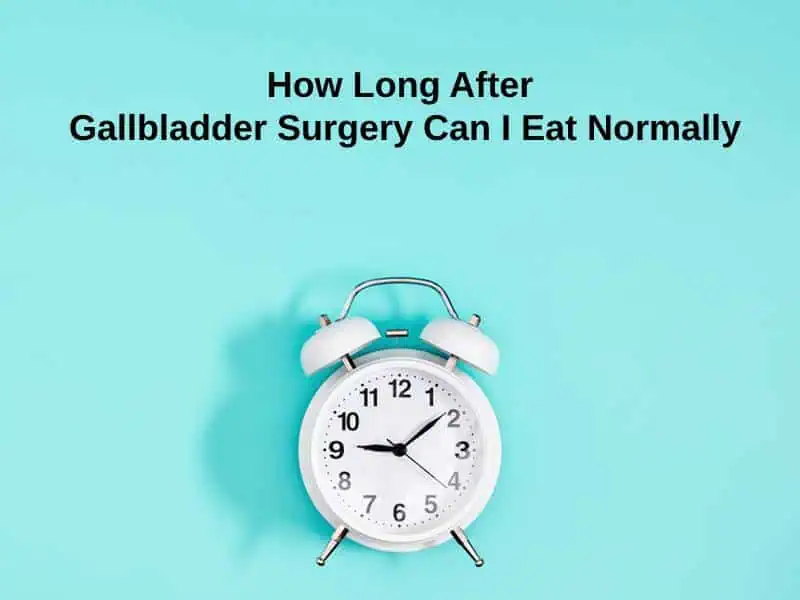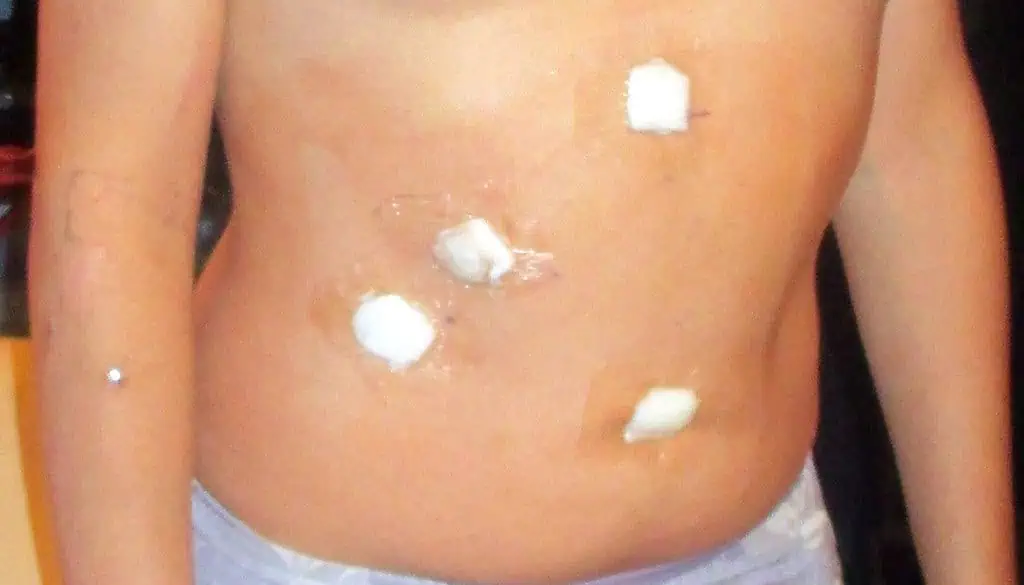Exact Answer: 2 Weeks
Gallbladder removal is done through a surgery referred to as ‘Cholecystectomy’. The gallbladder is a small organ that can appear to be pouch-like and stores the bile produced by the liver. The procedure to remove the gallbladder is quite common and is mostly done if there are painful gallstones present. There are 2 ways of doing this procedure- Laparoscopic Cholecystectomy and Open Cholecystectomy.
The gallbladder does not perform a very important role in digestion, as it is a storage organ and therefore, it does not directly after the process of digestion and does not greatly influence the time after which one can eat.

How Long After Gallbladder Surgery Can I Eat Normally?
Since the gallbladder does not play an essential role in the process of digestion, the body will require only a certain amount of time to heal. As the gallbladder’s main function is to store bile produced by the liver, its absence does not directly affect digestion or eating.
For Laparoscopic Cholecystectomy, it is normally advised to start eating a few hours to a day after the procedure. Starting with small, more frequent, and light meals. The aim in the following days should be to consume a healthy and balanced diet.
The Open Cholecystectomy procedure is a cumbersome process and may require a longer time to heal. After this procedure, it is advised to consume liquids and easily digestible foods for as long as 2 weeks, after which you can move on to a more balanced and inclusive diet.
The first foods to be eaten after the gallbladder surgery should be soft and bland foods that are easy to digest, this will aid quick recovery from the surgical procedure. Most health professionals recommend white rice, potatoes that are boiled, bananas, crackers, pasta, etc. You should include fiber-rich foods like beans, lentils, oats, barley, and fruits and vegetables. Try to fill your diet with as many nutrient-rich foods as possible, to have a balanced diet.
Soon after surgery, your body may find it difficult to digest high-fat foods. It is very important to avoid fatty meats like lamb, pork, sausages and switch to leaner meats like chicken, turkey, and salmon. It is also advisable to avoid dairy products, processed foods, caffeine, and alcohol for at least a month, or until your body gets accustomed to not having the gallbladder

| Type of Surgery | Time |
| Laparoscopic Cholecystectomy | 1 week |
| Open Cholecystectomy | 2 weeks |
Why Can I Eat Normally So Long After Gallbladder Surgery?
When the Laparoscopic Cholecystectomy is performed, it is done with minimal invasion and is therefore called keyhole surgery. This type of procedure requires minimal recovery time, which means that you can get back to the normal daily routine within a week. This includes eating normally.
The Open Cholecystectomy procedure is more invasive. Due to this, the healing period is also longer, lasting about 2 to 3 weeks and sometimes even up to 6 weeks. Easily digestible foods should be eaten for at least a week to two weeks, after which you can move on to a more balanced diet.
The body finds it difficult to digest greasy or oily foods soon after the procedure. Starting with small meals throughout the day, preferable liquids at first can help in avoiding bloating. Shifting to a vegetarian diet, temporarily, may help your body to recover quickly. Staying fit can also significantly improve digestion.

It is important to know that all these limitations will be for a short while until your body recovers and can process the changes that have taken place. In a few months after the surgical procedure, you can slowly start adding a few items that you used to previously consume but be sure not to drift too far away from a balanced diet.
Conclusion
Gallbladder surgery does not cause great harm to the body. It only requires a few dietary changes, temporarily. The keyhole surgery takes less time to heal and therefore one can go back to normal activities sooner.
Some people may experience bloating and even diarrhea after surgery, but it is normal and treatable. Open surgery may take longer for one to recover completely, as compared to keyhole surgery, but dietary changes remain the same.